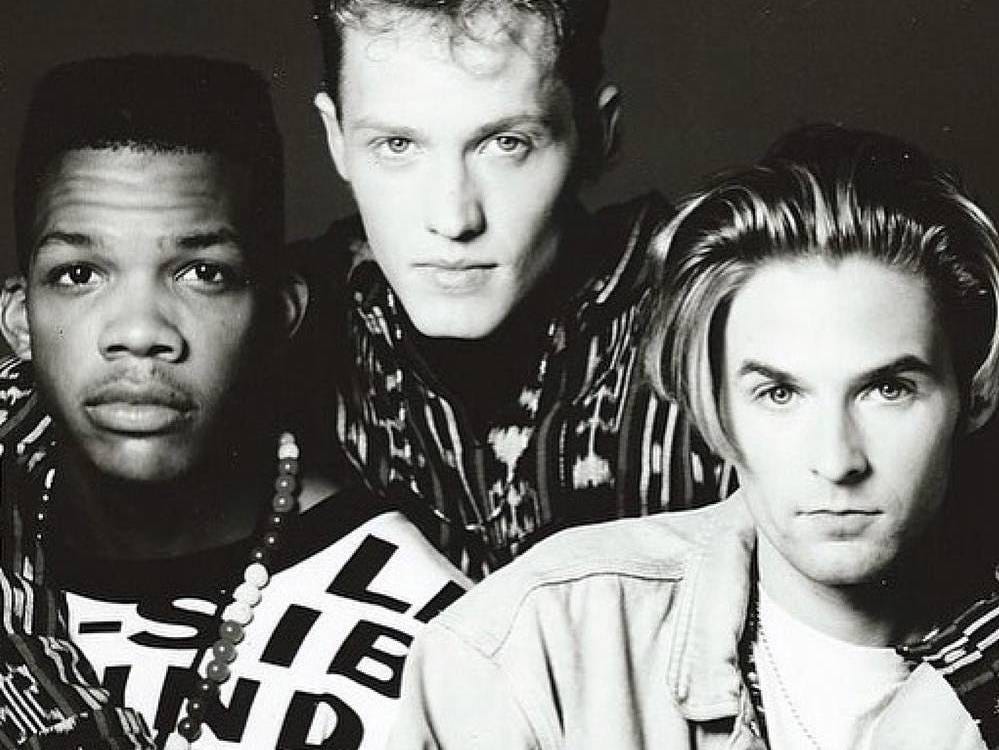DC Talking About Diverse City
The biggest Christian band of the 90s really did care about racism. Would that fly with today's Christian audiences?
This is Clusterhuck, my newsletter about faith, culture and a flourishing future for all! I’m glad you’re here. I can only do this through the support of my readers, and I’m grateful for every one I’ve got. If you’d like to join, just click here. You’ll get a free seven-day trial, including access to all the archives.
In the 1980s, a private school chatterbox named Toby McKeehan approached a Washington glee club alum named Michael Tait with an unusual offer. The two were students at Liberty University, and Jerry Falwell had taken a shine to Tait’s golden tenor — promoting him on the college’s gospel radio show. McKeehan was an aspiring musician too, though of a very different stripe. He’d been raised on the Sugarhill Gang and Grandmaster Flash, and had even recorded a few tapes of raps about his ex-girlfriend. He wanted to know: would Tait ever be interested in collaborating on something?
The two hatched a mean scheme. Tait would book gigs in Virginia-area churches and treat the crowds to his rendition of gooey gospel standards. Then he’d drop a surprise: “Folks, my sound guy back there has a few songs of his own he’s working on and they’re a little different but, oh, you guys wouldn’t be into that sort of thing [wink, wink].” As it turns out, most of the white haired Virginians in the pews were not into that sort of thing, but before you can say “I guess you guys aren’t ready for that yet but your kids are gonna love it,” McKeehan and Tait met Kevin Max.
Max was something else. An neo-rock aficionado from the Great Lakes State, he idolized Freddy Mercury and told his fellow Liberty students that he was Rob Stewart’s stepson. He was more Bowie than Beastie Boys, but he also brought an arty sensitivity to the proceedings that ripened the group’s appeal to a growing list of Christian labels. CCM, typically late to the party, was ready to tackle the hip hop scene, and what was then called “DC Talk and the One Way Crew” was looking like the safest bet in town. It’s almost too easy to imagine Forefront Records execs listening to Toby’s squeaky bars and then Tom Hanksing a “he’s white?”
A rap group with only one emcee might have been a tough sell, but DC Talk turned a liability into a strength. Tait’s gospel ambitions and Max’s rock and roll edge gave the trio a chameleon energy. The first couple albums find Tait and Max sitting around waiting for McKeehan to stop spitting Run DMC couplets, but by Free At Last, the three sound more like equal partners. Rap, rock, soul, ska, gospel, funk, house, and tinny ‘90s pop swirl together into a sonic stew with a little something for everyone. That, combined with the guys’ photogenic grins and dogged ambition, made them a force unlike anything the Christian pop world had ever seen.
Keep reading with a 7-day free trial
Subscribe to clusterhuck to keep reading this post and get 7 days of free access to the full post archives.





